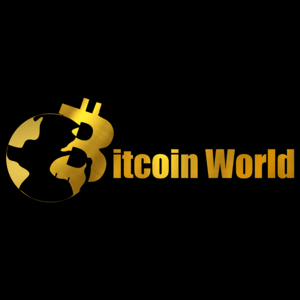BlackRock SEC Meeting: Pushing for Crucial Crypto Regulation
5 min read
In a move signaling growing institutional engagement with digital assets, representatives from BlackRock, the world’s largest asset manager, recently held a significant BlackRock SEC meeting with officials from the U.S. Securities and Exchange Commission’s (SEC) Cryptocurrency Task Force. This interaction, reported by Solid Intel on X, centered on the urgent need for clear crypto regulation across several key areas of the burgeoning digital asset landscape. Why the BlackRock SEC Meeting Matters for Crypto Regulation When an entity as influential as BlackRock engages directly with top regulators like the SEC, it sends a powerful signal to the market. With trillions of dollars under management, BlackRock’s interest and participation are often seen as a bellwether for broader institutional adoption. Their decision to proactively discuss crypto regulation indicates not only their commitment to the space but also the critical need for regulatory clarity to facilitate further institutional investment and mainstream integration. The meeting agenda was comprehensive, touching upon areas that are currently at the forefront of regulatory debate and technological innovation: Regulation concerning crypto staking services. Standards for the growing field of tokenization. Establishing clear approval standards for crypto exchange-traded funds (ETFs), particularly focusing on Bitcoin ETF approval . Discussion around standards for options based on crypto ETFs. This direct dialogue highlights the industry’s desire for a predictable and understandable regulatory environment, moving beyond enforcement actions towards proactive rule-making. Understanding the Push for Bitcoin ETF Approval Standards For years, the crypto industry, particularly proponents of Bitcoin, has sought the approval of a spot Bitcoin ETF in the United States. Such a product would allow traditional investors to gain exposure to Bitcoin’s price movements without directly holding the asset, potentially unlocking significant capital inflows. The SEC has historically been hesitant, citing concerns primarily related to market manipulation and inadequate surveillance-sharing agreements with regulated markets. The discussion on Bitcoin ETF approval standards during the BlackRock SEC meeting likely focused on addressing these very concerns. Key standards typically involve: Surveillance Sharing: Agreements with significant crypto trading platforms to detect and prevent market manipulation. Custody Solutions: Ensuring robust and secure methods for holding the underlying Bitcoin. Valuation: Reliable methods for determining the price of Bitcoin. Liquidity: Sufficient market depth to support the ETF’s creation and redemption process. BlackRock, having filed multiple ETF applications, including a prominent spot Bitcoin ETF application (the iShares Bitcoin Trust), is deeply invested in seeing these standards clarified and met. Their large size and existing relationships with regulators potentially position them uniquely to navigate the approval process. Demystifying Crypto Staking Regulation Needs Crypto staking is a process used by many proof-of-stake blockchains to validate transactions. Participants lock up their cryptocurrency holdings to support the network, and in return, they earn rewards. It’s a fundamental mechanism in the operations of many modern cryptocurrencies, including Ethereum after its transition to Proof-of-Stake. The SEC has raised questions about whether certain staking-as-a-service offerings constitute unregistered securities. Actions against platforms like Kraken and Coinbase have highlighted the regulatory uncertainty in this area. BlackRock’s interest in staking regulation suggests they are considering offering such services or see staking rewards as a potential component of digital asset investment products. Clear regulation around crypto staking is needed to define: When staking services are considered securities. Required disclosures for staking providers. Protections for investors participating in staking. How institutional players can offer or participate in staking compliantly. Lack of clarity here creates risk for both service providers and investors, potentially stifling participation in a core function of many blockchain networks. Charting the Course for Tokenization Standards Tokenization refers to the process of issuing a digital token on a blockchain that represents ownership of an underlying asset. This asset can be anything from real estate and art to stocks, bonds, or even intellectual property. Tokenization holds immense potential for increasing liquidity, enabling fractional ownership, and streamlining transactions. However, tokenization also presents complex regulatory challenges, particularly when the underlying asset is a traditional security or represents a share in a venture. The SEC needs to determine how existing securities laws apply to tokenized assets and the platforms where they are traded. BlackRock’s interest in tokenization standards underscores their view that this technology could revolutionize capital markets, provided there’s a clear regulatory framework. Discussions on tokenization standards likely included: Defining what constitutes a tokenized security versus other types of tokens. Requirements for issuing tokenized securities (e.g., registration). Regulation of platforms that list and trade tokenized assets. Custody rules for tokenized assets. Developing clear standards is essential for unlocking the potential of tokenization while protecting investors and ensuring market integrity. Navigating the Broader Landscape of Crypto Regulation Beyond staking, tokenization, and ETFs, the conversation likely touched upon the broader challenges and opportunities in crypto regulation . Regulating a global, decentralized, and rapidly evolving technology is no simple task. The SEC faces the challenge of applying decades-old securities laws to novel digital assets and technologies. Key challenges in establishing effective crypto regulation include: Defining various types of crypto assets (security, commodity, currency, utility token). Jurisdictional issues in a global market. Keeping pace with technological advancements (e.g., DeFi, NFTs). Balancing investor protection with fostering innovation. Despite these hurdles, the potential benefits of clear crypto regulation are significant: Increased investor confidence and protection. Greater institutional participation and capital flow. Reduced market manipulation and illicit activity. A clear framework for businesses to innovate and operate legally. The discussion regarding standards for options on crypto ETFs is another facet of this maturing market. Options trading adds layers of complexity and requires specific rules to ensure fair pricing, settlement, and prevent manipulation, especially given the volatility of crypto assets. What Does This Meeting Signal for the Future? The BlackRock SEC meeting is a positive indicator that major financial players and regulators are actively engaging to shape the future of digital asset markets. While regulatory clarity is still a work in progress, these dialogues are crucial steps towards establishing the necessary frameworks for widespread adoption and responsible innovation. Investors and market participants should view this as a signal of the market’s evolution and the increasing likelihood of more defined rules governing the space in the future. Understanding the nuances of upcoming crypto regulation , particularly around areas like crypto staking , tokenization standards , and the path towards Bitcoin ETF approval , will be vital for navigating the digital asset landscape effectively. Conclusion: A Step Towards Regulatory Maturity BlackRock’s proactive engagement with the SEC on critical issues like staking, tokenization, and ETF standards marks a significant moment in the journey towards clearer crypto regulation . It underscores the industry’s desire for rules that facilitate growth while ensuring market integrity and investor protection. While the path to comprehensive regulation is long and complex, dialogues like this are essential steps in building a bridge between traditional finance and the innovative world of digital assets. The outcome of these discussions will undoubtedly shape the future structure and accessibility of crypto markets for years to come. To learn more about the latest crypto regulation trends and the path towards Bitcoin ETF approval, explore our articles on key developments shaping the future of digital assets.

Source: Bitcoin World



